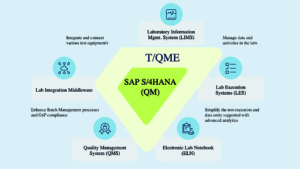Women’s health from niche to mainstream
Women make up half of the world's population. Finally, pharma companies and invetors are now beginning to pay more attention to female diseases.
Seasoned biotech investors can easily rattle off the names of companies developing drugs for orphan and even ultra-orphan diseases. Ask those same investors about firms focused on women’s health, and you often get a blank stare. Ironically, one commonly heard view is that women’s health is a niche.
A closer look at the markets (and my past experience as a gynaecologist) show the opposite: One in six US women are suffering from endometriosis or uterine fibroids, conditions for which companies like Neurocrine/AbbVie, Myovant and ObsEva have drugs on the market or in late-stage development. Each year, women worldwide undergo more than 2.5 million in vitro fertilisation (IVF) cycles, creating an enormous opportunity for new drugs to improve the success rates of fertility treatments. Pre-eclampsia and preterm labour endanger up to 10% of all pregnancies, but there are currently no FDA-approved drugs for their therapy. And in 2019, Sage Therapeutics received the first-ever FDA approval for a drug to treat postpartum depression, which affects at least one in ten new mothers.
Historically, many large pharma companies never had a presence in women’s health, while others exited it in the early 2000s when hormone replacement therapy went out of favour. It probably didn’t help that the overwhelming majority of decision-makers in the pharma industry (and the investment sector) were and still are male.
But change is coming: In August 2020, Bayer doubled down on its historic commitment to women’s health by acquiring KaNDy Therapeutics, a private UK-based biotech company. This deal, potentially worth more than $1 billion, provides the German pharma firm with a drug in late-stage clinical development for menopausal symptoms. This move directly positions Bayer against Astellas, which acquired a competing drug from Belgium-based Ogeda for up to 800 million. The rationale behind these deals is simple: In the US alone, two million women annually enter menopause, and more than 75% of them suffer from related symptoms, often over many years.
Taken together, this convergence of market opportunities, biotech innovation and renewed pharma interest suggests that a renaissance of the women’s health sector is underway. Investors looking for future growth sectors within healthcare should take note.
This article was published in the European Biotechnology Magazine Winter Edition 2020.


 T. Rowe Price
T. Rowe Price Sandoz
Sandoz Tenthpin Solutions AG
Tenthpin Solutions AG